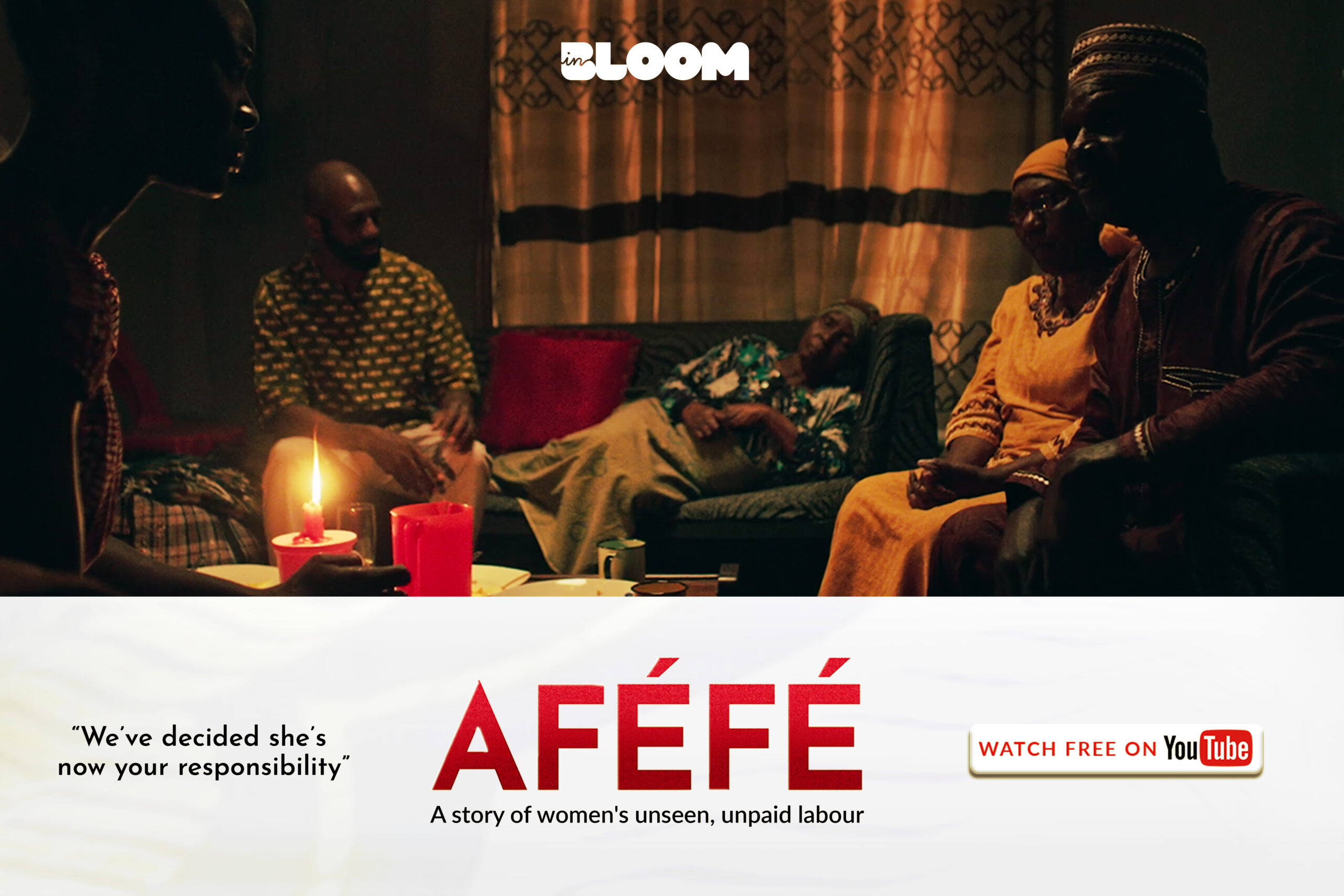Movies
When Submission Silences Ambition: The Hidden Cost of Unpaid Labour
Written by Inbloom Stories

“Wives, submit yourselves unto your own husbands” — Ephesians 5:22a.
This verse has been quoted to many Nigerian women in various contexts. It often surfaces when a woman chooses to keep her maiden name, rather than adopt her husband’s. It’s repeated when she decides to dress according to her own preferences. And at times, it’s invoked with no clear reason at all, a cultural reflex that serves as a reminder of expectations placed on women.
Yet, perhaps more than any other circumstance, this verse is most often echoed when women are expected to shoulder unpaid domestic or care responsibilities, tasks for which they receive little recognition, support, or appreciation.
In AFẸ́FẸ́, Simi faces the same situation when she’s offered her dream job, head stylist & manager at a major salon in Lekki but must give it up to become the primary carer for her mother-in-law whose health has taken a turn for the worse. She has no say in the matter. After all, her husband’s desires are what matter most. And she must submit.

Written and directed by Dolapo ‘Lowladee’ Adeleke, the film is created by the In Bloom Project, an initiative by the MTV Staying Alive Foundation, which aims to amplify voices on gender related issues through engaging and power storytelling. So far, they’ve collaborated with five female filmmakers on five short films they hope will drive conversations around gender inequality.
There exists a world in which women’s dreams, desires, and demands are not treated like an afterthought, a world where a woman is fully seen as human, rather than being reduced to the labour she provides to those around her.
Nearly 1 in 2 women, who are outside the labour force worldwide, report leaving because of the burden of unpaid care work—over 708 million women in total.
Each one could’ve been an innovator, an inventor, an artist, a writer, contributing to our cultural
knowledge, expressing themselves and their creativity, and moving humanity forward with their
ingenuity. Instead, their dreams are sidelined, sacrificed at the altar of their family’s needs.
When the burden of unpaid labour falls disproportionately on women, the impact is felt across society. A more equitable world is possible. It hasn’t arrived yet, but it remains within reach.
Sponsored Content



















